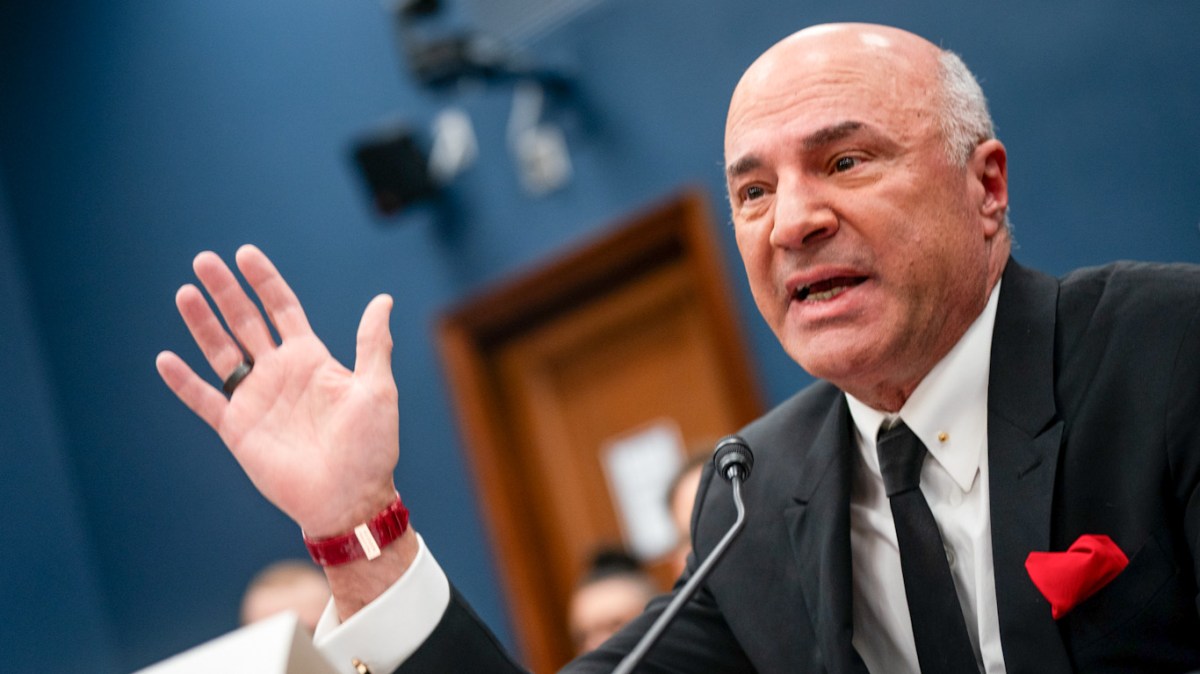Leave it to the old guy from Shark Tank to add some perspective to the whole Donald Trump fraud case fiasco. Kevin O’ Leary, best known for that show but also an investor and entrepreneur, took a step outside the “Trump is bad” bubble to let people know what he thinks is a sad truth: “New York is slowly becoming the number one loser state in America.”
For context: Former President Trump and his companies were found to have inflated the value of properties to secure better bank loans. He was fined $355 million, and barred from running any companies in New York for a few years. On the surface, it seems pretty cut and dry: You lie about the value of your properties, and you get in trouble for it. Not so fast, says O’Leary. The Canadian businessman appeared on CNN last night to share his own thoughts on the matter.
“Excuse me, what fraud?” he said. “This is not about Trump anymore. I care about America.”
This is how it works: Think of a developer like an entrepreneur who makes their building seem like the best building on Earth. Once the developer sets a price for it, it’s up to the bank to do the due diligence to determine whether the price set by the developer is the same price the bank comes up with after doing their own analysis. O’Leary used the example of someone setting a price for $400 million, and asking for a $200 million loan from a bank. The bank can come back and say, no, your building is only worth $300 million, so we’re only going to give you $150 million.
This type of back and forth, which O’Leary calls haggling, has been going on “since banks existed” and takes place “everyday, everywhere on earth.” While these numbers are out of reach for 97% of all Americans, think about when someone tries to get a loan for a new house. The bank hands out loans based on their calculated price of the house, not what you say the house is worth.
So who’s the loser in all this? While the burden fell on Trump, let’s be honest, Trump is a very wealthy man and he can sell a building or two and be fine. That leaves the rest of us. O’Leary thinks it’s America and the people of New York who are going to suffer from this fraud ruling, because in his opinion, it’s going to stop entrepreneurs from doing business in the state. He blames “the management” of New York.
This is something O’Leary is passionate about, and the interview even gets a little testy at some points, as he asks: “Did we just diminish the great state of New York and the great people of New York? Shouldn’t they ask for better management so they don’t become a flyover state? Remember, New York has the highest taxes in the country. The worst regulatory environment and it’s incredibly mismanaged, and on top of that you get this insanity. A victimless crime.”
This idea of “a victimless crime” is a talking point of Trump’s attorneys, and has been for the duration of the whole fraud trial. In an appeal, Trump’s lawyers argued that the lenders at Deutsche Bank had to do their own due diligence on the deals, and that they, as financial experts, should be smart enough to know that Trump was inflating the value of his property. O’Leary thinks the court’s ruling is just painting a black smear over business in New York, and will have a chilling effect on everything.
He then goes after the judge in the case, Judge Arthur Engoron, who had to deal with the unenviable task of wrangling the former president inside of the courtroom. O’Leary thinks Engoron was being irrational in his ruling, and in the amount he fined Trump. He wants everyone to know that he thinks this is bigger than Trump.
“Forget about Trump, I don’t care about Trump anymore. I care about America I care about entrepreneurship and I care about democracy.” Of course, Trump has been playing the hits for this one,. screaming that the whole thing is a political witch hunt, and a hack job, etc. When you look at it from that point of view, is he right?
As for the whole “doing a fair assessment” thing, a Deutsche Bank employee named David Williams testified during the trial that doing due diligence on client information was standard practice, and that at one point, they even dropped Trump’s net worth from $4.9 billion to $2.6 billion. Apparently that wasn’t enough for the government. Whether or not this has a chilling effect on business remains to be seen, but if O’Leary is right, then the real loser here is the great state of New York.

